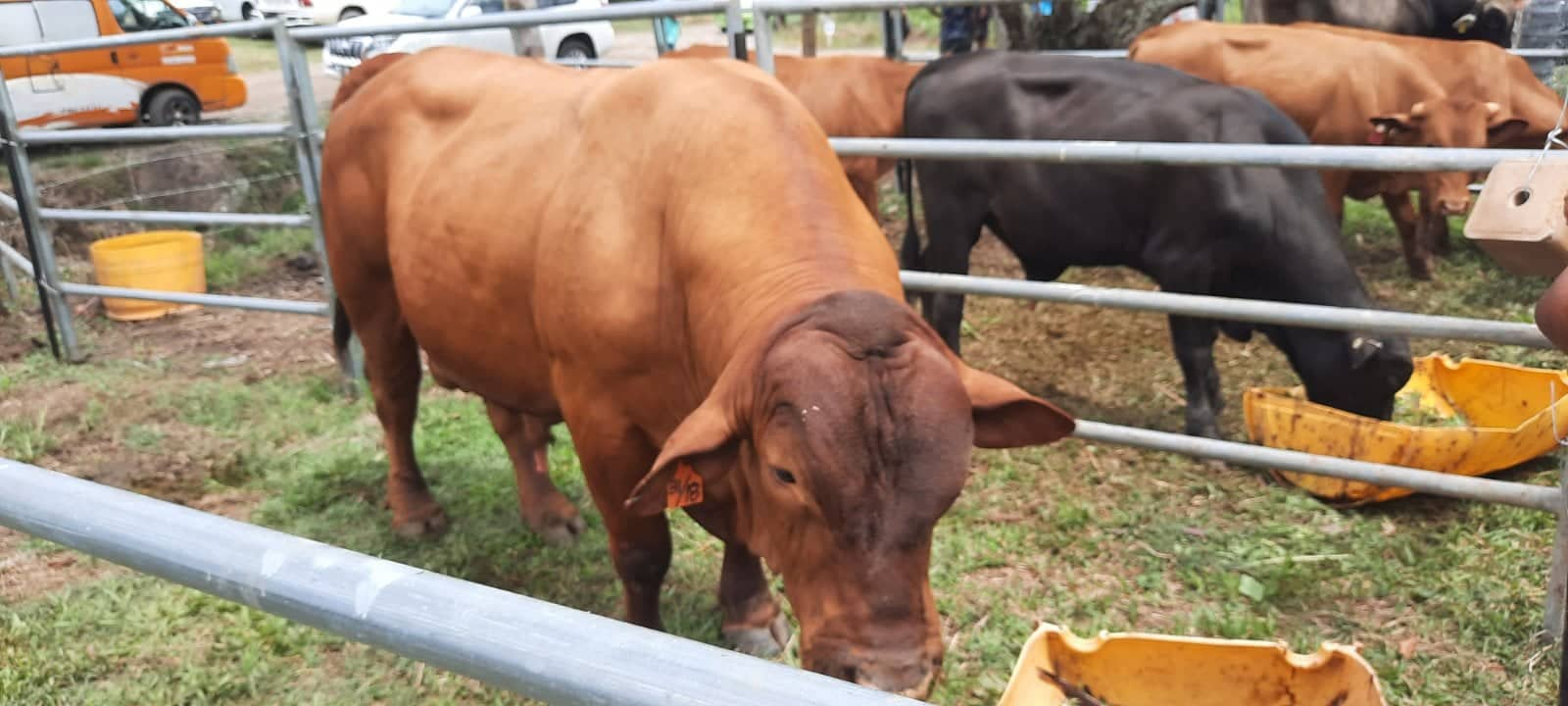Improved Cattle Genetics Released To Farmers
September 27, 2022

As part of ongoing efforts to improve the genetics of cattle in the nation, the Ministry of Agriculture has released 14 improved breeders that were given to 11 cattle farmers at the Nacocolevu Research Station in Sigatoka.
While officiating the introduction of the improved cattle genetics, the Minister for Agriculture, Hon. Dr. Mahendra Reddy said the government, through the Ministry of Agriculture, had helped beef farmers through a variety of ongoing beef development programs, including genetic improvement programs, the building of stockyards, pasture development, and the distribution of fencing packages.
The introduction of the improved cattle breed, according to Minister Reddy, was a significant turning point in the development of the Fijian cattle industry. The Ministry of Agriculture had successfully tested new technology for transferring animal genetics, resulting in the introduction of two superior breeds to the country's livestock industry.
He said that the Ministry of Agriculture has consistently invested in research and development in an effort to preserve and enhance the quality of cattle genetics while also lowering the risk and threat to biosecurity.
"Given the ongoing biosecurity threat we introduced ET as a new way of introducing livestock genetics into the Fijian livestock sector in 2018," he said. "We have evolved from natural mating to artificial insemination, and now to Embryo Transfer Technology, or ET for short."
"The first stage of the embryo development work happened in Australia," explained Hon. Reddy. "Embryos were harvested, fertilized, and cryopreserved in the lab before being flown to Fiji with full biosecurity compliance."
Minister Reddy said the Ministry carefully chose four superior breeds—Senepol, Brown Swiss, Wagyu, and Drought Master—based on their performance in terms of adaptability to heat stress, rapid growth and maturity, reproduction, milk production, and meat quality.
"The first phase involved the establishment of a tropically adapted elite beef and dairy herd in Fiji, which involved the Senepol breed and Brown Swiss for dairy," said Minister Reddy.
The owner of Horeb Farms Fiji, Mr. Samisoni Manewa, has praised the Ministry of Agriculture's efforts in releasing the Senepol breed to cattle farmers because he had been anticipating receiving the breed ever since learning of its introduction to Fiji. "First and foremost, I want to express my gratitude to the Ministry for picking my farm as the recipient of these Senepol cattle and allowing me to purchase one. I've been eager to own this breed because our current breeders aren't doing too well. I'm confident that my cattle farm will improve thanks to this breeder, and I can expand my cattle farming, "Mr. Manewa said.
In particular, Mr. Manewa
said, "I would like to thank the Ministry of Agriculture for the great
work it is doing for us farmers. This is the way forward."
The Brown Swiss breed records an average birth weight of 45 kg, while the Senepol breed records an average birth weight of 46 kg (compared to the local breed, which weighed between 30 and 35 kg). The Brown Swiss breed also records an average first lactation milk production of 18 litres.
-Ends-
